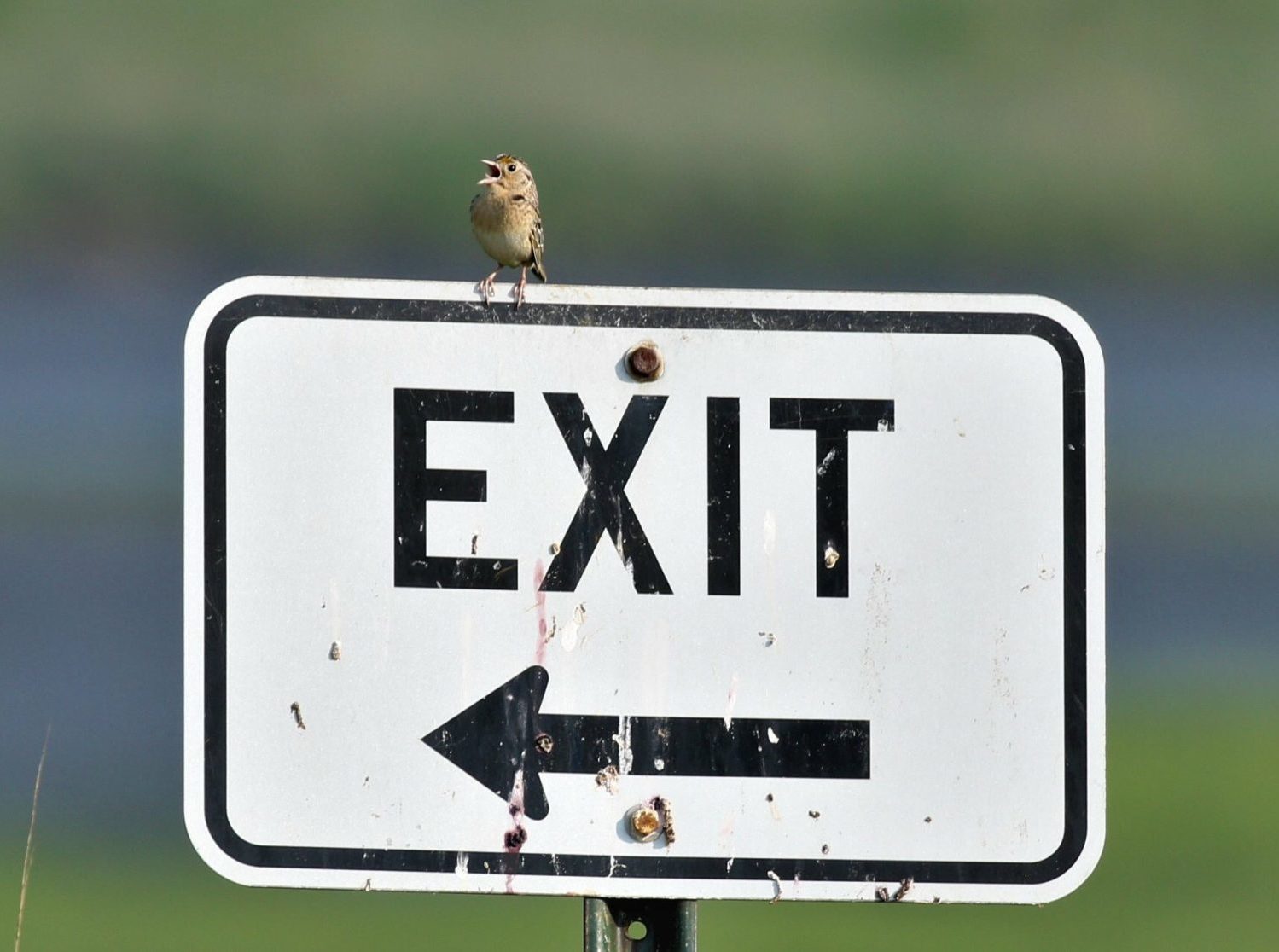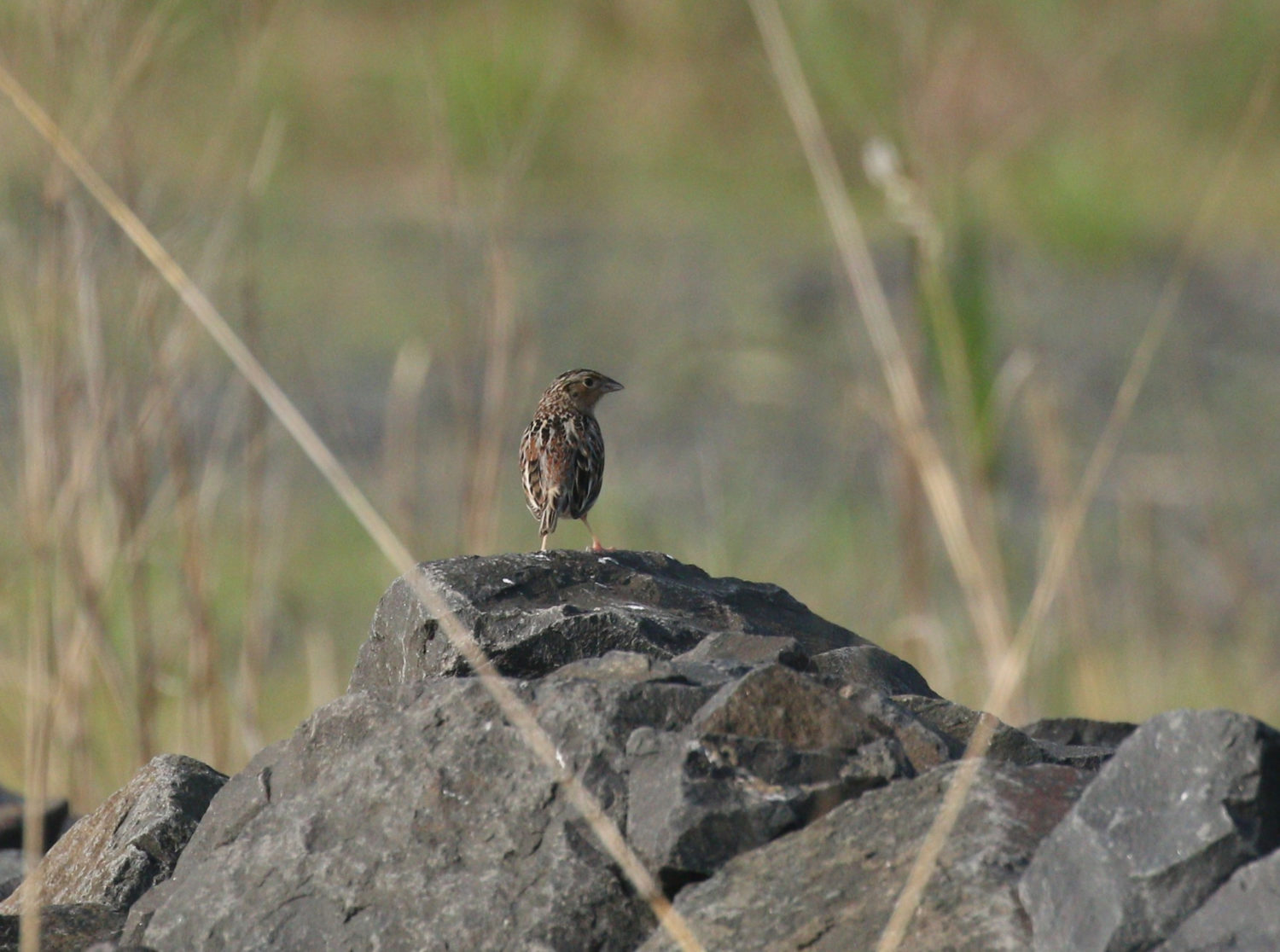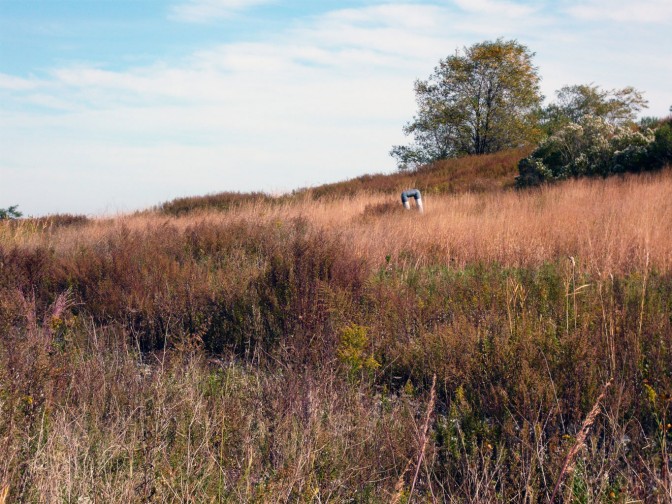As Birds Face Threats from Climate Change, Freshkills Park Could Be a Refuge

Grasshopper sparrow at Freshkills Park. (Photo: Jose Ramirez-Garofalo)
Dr. Richard Veit first saw grasshopper sparrows nesting at Freshkills Park in 2015. This was a surprising discovery for Veit, a College of Staten Island researcher who has been studying the site’s grassland bird populations for decades. According to the Breeding Bird Survey, grasshopper sparrow populations have declined by 97% in New York State.
Since grasshopper sparrows started breeding at Freshkills Park, Dr. Veit and his students have seen stable populations, with thirty-eight singing males observed in 2018.
The grasshopper sparrow is just one of many grassland bird species whose populations are threatened. Grasslands in North America have been disappearing over the past century due to agricultural production, forestation, and unsustainable development. The impacts of climate change will likely intensify the stressors that make these habitats – and the wildlife that depend on them – vulnerable.

Grasshopper sparrow at Freshkills Park. (Photo: Jose Ramirez-Garofalo)
The grasshopper sparrow’s arrival indicates that Freshkills Park may represent a refuge for grassland birds. These unique grasslands exist on top of the Fresh Kills Landfill’s capped mounds. The engineered hills were seeded with a native plant mix, and they’re mowed annually to prevent forest succession. Grassland birds have lost most of their original habitat in the Northeast, so the new grasslands at Freshkills Park serve an important function.
Researchers have also seen killdeer, spotted sandpipers, woodcocks, savannah sparrows, and bobolinks utilizing the park. As conditions like increasing temperatures, reduced rainfall, and drought force birds to migrate elsewhere, the park might absorb more species. Climate change presents many uncertainties for wildlife, but it’s clear that reclaimed lands like Freshkills Park will offer vital habitat.
For updates on research and wildlife at Freshkills Park, join the newsletter and follow @freshkillspark on Facebook, Twitter, and Instagram.




